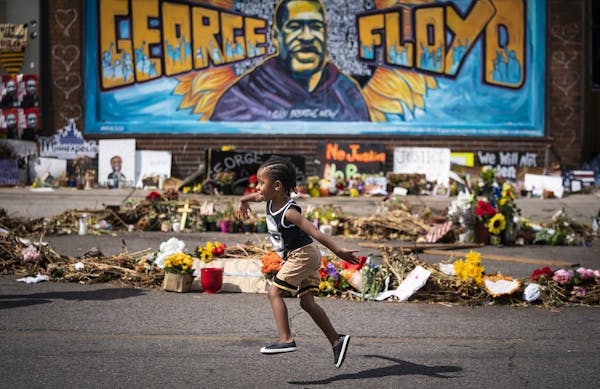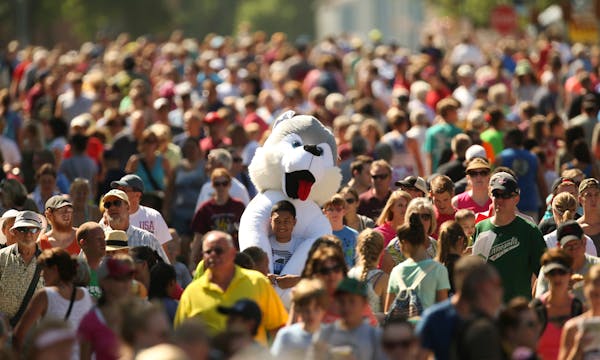Why is Minnesota the last state with 3.2 beer?
Listen and subscribe to our podcast: Via Apple Podcasts | Spotify | Stitcher
Ours is the only state left still acting like a Prohibition-era scold by restricting beer sales at grocery and convenience stores to those with 3.2 percent alcohol.
It's enough to make a guy like Star Tribune reader David Infanger ask, "Why is Minnesota the last state to have 3.2 beer?"
It's such a random number, Infanger said, and now that liquor stores are open seven days a week, why do we limit the alcohol content of beer sold at some places but not others?
His question landed here at Curious Minnesota, a Star Tribune feature powered by questions from readers
So, to make one thing clear, we are indeed the last state selling 3.2 beer specifically made to meet state restrictions, but we're not the last state selling low-alcohol beer.
Many "light" beers would meet Minnesota's 3.2 statute, which uses the old-fashioned "alcohol by weight" measurement. Using the more modern "alcohol by volume" measure, a so-called 3.2 beer is actually about 4 percent. Even lower are low-alcohol brews like Amstel Light or Miller 64.
The 3.2 beers specially made for grocery stores are a dying breed: Some brewers have dropped them altogether. But here, too, we're the exception. The August Schell Brewing Co. in New Ulm still makes 3.2 for Schell's and Grain Belt. And plenty of places in Minnesota serve 3.2: There are 1,484 active 3.2 bar licenses in Minnesota, according to state officials, from Pizza Hut of Mora to China Café of Duluth to the Rochester Athletic Club.
So why 3.2, and not some other low number?
The answer goes back to Prohibition's repeal.
When popular support for prohibition dried up, politicians realized it might take years to undo the 18th amendment, so they looked for a shortcut. Prohibition outlawed "intoxicating liquor," but it didn't mention alcohol content. After hearing expert testimony from one T.C. Haffenreffer of Boston, who said 3.2 was the number brewers could hit and still make non-intoxicating beer, Congress acted swiftly and, well, here we are.
There's still some debate over how 3.2 became the number, said beer historian Doug Hoverson, author of "The Drink that Made Wisconsin Famous."
"It seems like that was about as low as you could go and still have the brewing process work out so that there was something that was properly flavorful," said Hoverson.
Why do we alone still serve it?
"I don't really have a good reason for why Minnesota is last other than a combination of inertia and people who feel some level of fondness for an old 3.2 joint," said Hoverson.
Efforts to overturn the 3.2 restrictions have been opposed by liquor stores and groups like the Minnesota Municipal Beverage Association. The group's executive director, Paul Kaspszak, said so-called "alcohol everywhere" bills would be bad for public health, the liquor store business and small brewers.
"If you go to other states you will see that the market is dominated by big chains," said Kaspszak. So far, that argument seems to have held off efforts to undo the 3.2 law.
And one more thing to consider: It was U.S. Rep. Andrew Volstead of Granite Falls, Minn., who in 1919 wrote the law that enforced prohibition, setting in motion the forces that created 3.2.
Given that history, and the lobbying pressure, and the customers who keep more than 1,400 3.2 licenses afloat, maybe it's not surprising: Even though we're the last ones doing it, we're still serving 3.2.
---
If you'd like to submit a Curious Minnesota question, fill out the form below:
Read more Curious Minnesota stories:
Why is Minnesota more liberal than its neighboring states?
When you flush a toilet in the Twin Cities, where does everything go?
What's the truth behind Minnesota's Kensington Runestone?
When did wild bison disappear from Minnesota?
Does Minnesota really have the worst winters in the country?
How did Minnesota's early settlers make it through the dark, cold winters?
Why does the Stone Arch Bridge cross the river at such an odd angle?



